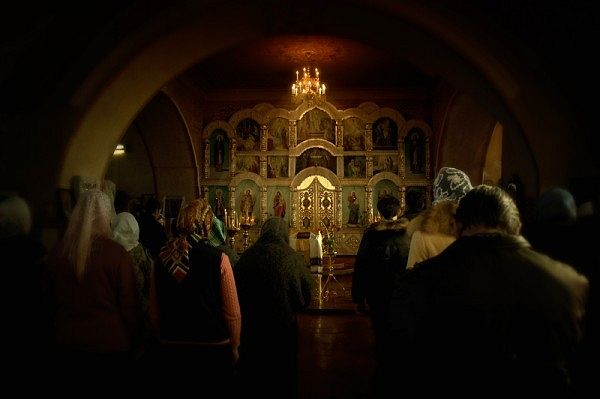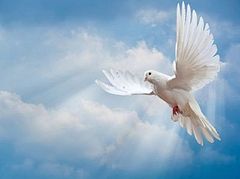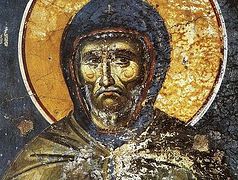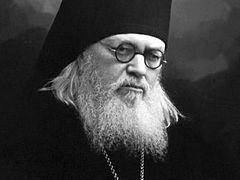Part 1, Part 2
Parts 3 and 4, Part 5
“O Lord, give the spirit of humility to thy servant!” The commandment of humility is the first commandment of the Beatitudes, and that means it is the most important one. Remember the word of God pronounced by the prophet Isaiah: For thus saith the high and lofty One that inhabiteth eternity, whose name is Holy; I dwell in the high and holy place, with him also that is of a contrite and humble spirit, to revive the spirit of the humble, and to revive the heart of the contrite ones (Is. 57:15).
Don’t you want God to live with you? He Himself says that He lives in the hearts of the humble and revives them; and we so badly need out hearts to be revived! God looks down on the humble of heart. Remember the words of the holy apostle James: Wherefore he saith, God resisteth the proud, but giveth grace unto the humble (Jas. 4:6). Don’t you want to receive grace? And if you want it, then remember what humility is, that it is a sacred virtue very pleasing to God, and for which God lives with us and looks down upon us. Humility is the opposite of pride.
The humble are the poor in spirit, who while remembering their failings turn their gaze to the depths of their hearts, constantly watching after every movement of the heart, watching every impurity that has penetrated it. The saints, who always fulfilled the commandments of Christ, before whose mental gaze the Lord always stood, constantly remembered humility and prayed for it.
Christ says, Learn from Me, for I am meek and lowly of heart (Matt. 11:29). The Lord commands us to learn humility from Him, and humility was shown through His entire earthly life. Human lips dare not speak of the humility that He manifested at the trial against Him, and later when He was led to Golgotha and crucified on the Cross—so great it was. This is the humility of the Savior.
Humility is a quality of the human soul that the proud stigmatize contemptuously, for such people do not believe in Christ and have chosen other ideals in life. They call humility slavery, and the humble—slaves deprived of the most required and necessary quality: the spirit of protest, of forceful opposition to mankind’s serious misfortunes. They contemptuously stigmatize humility, and exalt the energy of rebellion and protest.
However the humble are not slaves submitting to force, but spiritual victors over evil. Only they lead a true struggle with evil, for they uproot the very sources of it in their own hearts and the hearts of others. They do not believe that the cause of evil lies solely in the imperfection of social relationships. The humble man is a true warrior of Christ, and not a slave. But truly humble people are very hard to find these days—no one thinks about humility; it is practically forgotten.
Only those who walk the path of Christ and who learn from Him spiritual lowliness think about humility. Only the saints are truly humble. The basis of their sanctity consists in the fact that they never exalt themselves over others, but judge only their own hearts.
Proud and arrogant people judge and discuss everything without giving it a thought, even what is most lofty and sacred; while the humble are bereft of all arrogance; they are modest and quiet. There are many examples to prove this in the Holy Scriptures and the Lives of the Saints. Righteous Abraham was great before God, he heard the great commandments and was called a friend of God, but he never ceased to call himself dust and ashes; the prophet and king David sincerely said of himself, I am a worm, and not a man, a reproach of men (Ps. 21:7); the apostle Paul called himself the chief among sinners, was alien to arrogance and self-aggrandizement, and was not afraid to admit his weaknesses: I was with you in weakness, and in fear, and in much trembling (1 Cor. 2:3). Such profound humility is an example to all of us, who are infinitely far from it.
We need to think all the time about it and ardently ask God about it. We cannot acquire this virtue through any of our own efforts. Humility is a great gift of God. And every step along the path of Christ brings us closer to it. When a man’s heart is humble, the Holy Spirit comes to abide in it. What great happiness it is to be humble, and how difficult this is.
The Lord Jesus Christ said to His disciples, But he that is greatest among you shall be your servant. And whosoever shall exalt himself shall be abased; and he that shall humble himself shall be exalted (Matt. 23:11-12). How often these words of Christ’s come true! How many proud people there have been who try to be above everyone else later fall lower than everyone; and how many humble, insignificant, poverty-born people who began their lives in hardships and suffering, who later became great people. This is the story of many saints.
The Lord says: But many that are first shall be last; and the last shall be first (Matt. 19:30). That is how it is in life, and that is how it will be at the Last Judgment: The first proud and impudent will be the last, while the last—the insignificant and despised—will be the first.
We should remember the words of the holy apostle Peter: Likewise, ye younger, submit yourselves unto the elder. Yea, all of you be subject one to another, and be clothed with humility: for God resisteth the proud, and giveth grace to the humble (1 Pet. 5:5). God gives grace to the humble. We have to strive towards humility, and constantly ask God for it.
O Lord and Master of my life, the spirit of humble-mindedness give me Thy servant! If a person will continually have these holy words in his memory, he will receive from God the profound virtue of humility.
To be continued.





